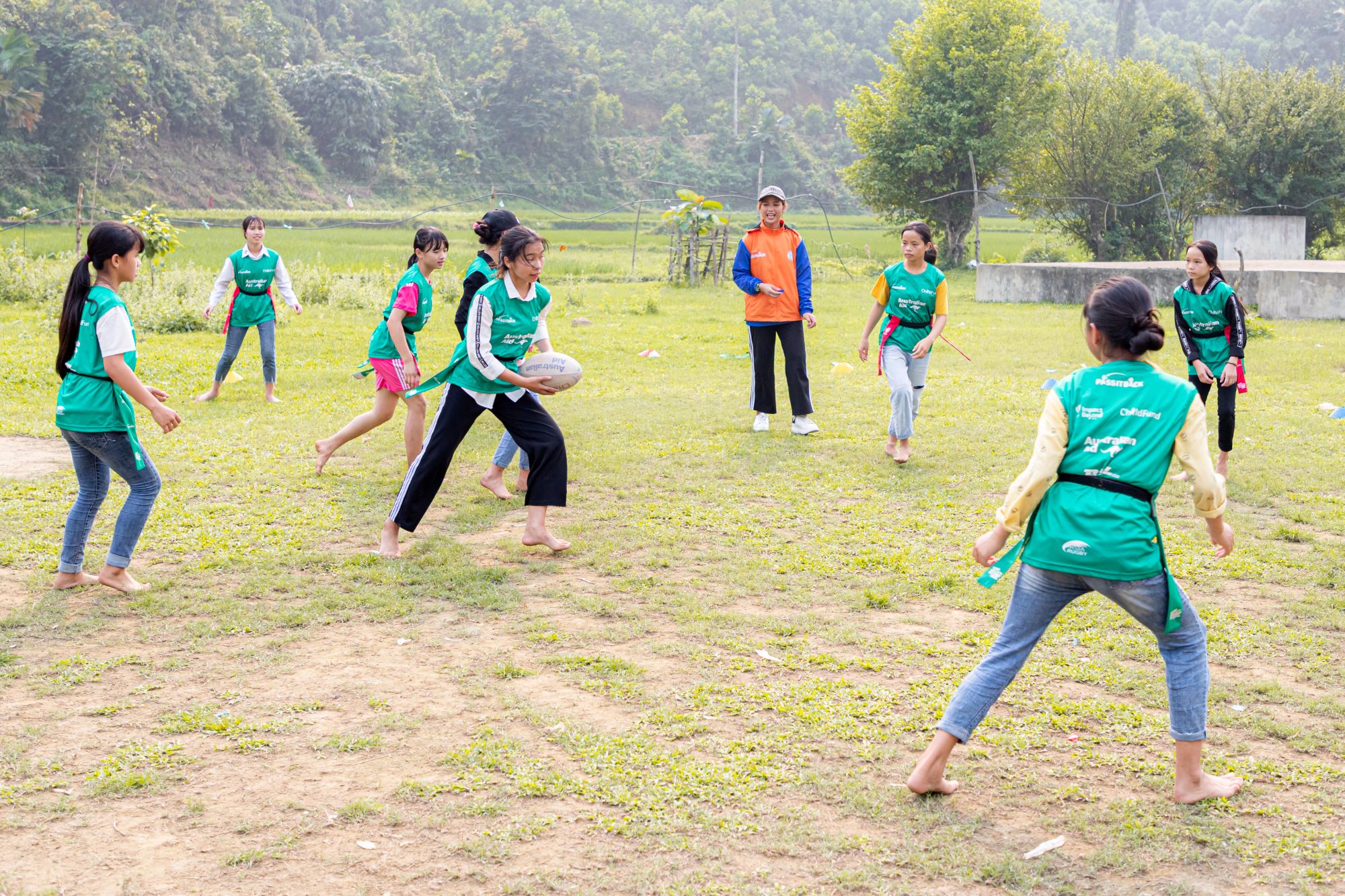At ChildFund Rugby, we’re no strangers to the transformative power of sport and the benefits it brings to those who engage.
However, it is important to recognise that while sport has the ability to change lives, to unite, and to inspire, not everyone has equal access (or has access at all) to these opportunities.
Girls and women
In many places, sport has long been viewed as exclusively for boys and men. Social norms suggest that girls and women should embody traits of gentleness and delicacy, with sport being considered too masculine or physically challenging.
Historical gender stereotypes have also reinforced the notion that sports are better suited for males, while females are expected to focus on domestic responsibilities instead.
Across all levels of sport, from participation to high performance, girls and women continue to be underrepresented. Whether it’s in playing roles on the field or in non-playing roles within sports organisations, participation remains limited.
People with disabilities
Numerous additional barriers face people with disabilities when it comes to participating in sport. These include a lack of understanding and awareness regarding their inclusion, limited opportunities for participation, inadequate training programs, and insufficient competitive avenues – all of which further restrain engagement.
Additionally, psychological and sociological factors, such as attitudes towards disability held by communities and people with disabilities themselves, play a role in hindering participation.
Access to essential information and resources also remains a concern, exacerbating the challenges faced by individuals with disabilities in accessing and participating in sport.
Displaced communities
For people living in conflict zones or refugee camps, the idea of engaging in sport (as well as other recreational activities) may seem like a distant dream amidst daily struggles for survival.
While efforts are being made to facilitate opportunities for sports participation in such environments, limited resources, insufficient infrastructure, security concerns and the psychological strain of enduring conflict or displacement continue to pose significant obstacles for affected populations.

Socio economic status
The costs associated with time spent, equipment, memberships and transportation to venues can present significant barriers for individuals and families facing financial hardship.
As a result, many individuals from low-income backgrounds find themselves excluded from opportunities to engage in sport, thereby missing out on the physical, mental, and social benefits associated with participation.
LGBTQ+ Individuals
There are unique challenges and barriers facing LGBTQ+ individuals when it comes to participating in sports and accessing sports facilities. Discrimination, both overt and subtle, is a pervasive issue that can create hostile environments and exclude LGBTQ+ individuals from participating fully in sporting activities.
Moreover, the lack of inclusivity within sports organisations and communities can further marginalise LGBTQ+ individuals. Many sports environments may not adequately accommodate or celebrate diversity, leading LGBTQ+ individuals to feel unwelcome or unsafe.
Safety concerns also pose challenges for LGBTQ+ individuals in sports. Fear of harassment, bullying, or physical harm due to their sexual orientation or gender identity can hold back individuals from joining sports teams or accessing sports facilities.
Addressing barriers to participation
The groups mentioned represent only some of the diverse range of individuals who encounter obstacles in participating in and enjoying sport.
Addressing these barriers requires collective, targeted action to promote inclusivity, accessibility, and equity in sports programs, facilities, and policies. We must recognise and address these obstacles to ensure sport and the benefits participation offers is made available to all.
At ChildFund Rugby, we reaffirm our commitment to the core principle that everyone, regardless of their background or circumstances, deserves the opportunity to experience the transformative power of sport.
